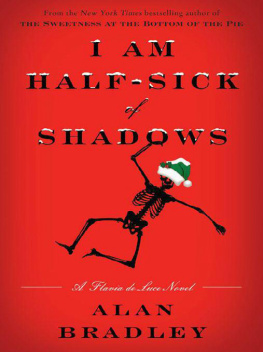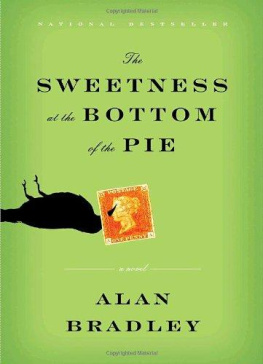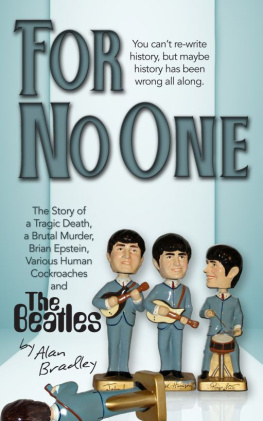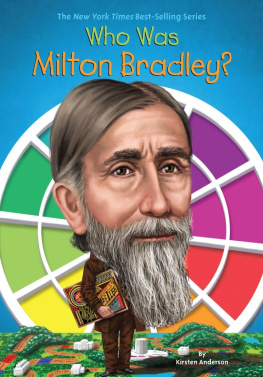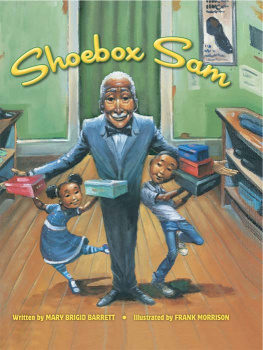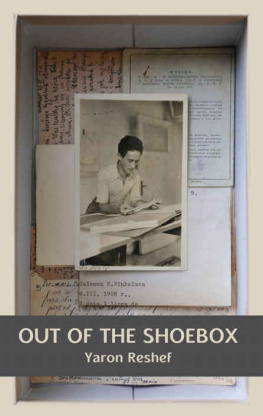Alan Bradley - The Shoebox Bible
Here you can read online Alan Bradley - The Shoebox Bible full text of the book (entire story) in english for free. Download pdf and epub, get meaning, cover and reviews about this ebook. year: 2014, publisher: Doubleday Canada, genre: Non-fiction. Description of the work, (preface) as well as reviews are available. Best literature library LitArk.com created for fans of good reading and offers a wide selection of genres:
Romance novel
Science fiction
Adventure
Detective
Science
History
Home and family
Prose
Art
Politics
Computer
Non-fiction
Religion
Business
Children
Humor
Choose a favorite category and find really read worthwhile books. Enjoy immersion in the world of imagination, feel the emotions of the characters or learn something new for yourself, make an fascinating discovery.

- Book:The Shoebox Bible
- Author:
- Publisher:Doubleday Canada
- Genre:
- Year:2014
- Rating:4 / 5
- Favourites:Add to favourites
- Your mark:
- 80
- 1
- 2
- 3
- 4
- 5
The Shoebox Bible: summary, description and annotation
We offer to read an annotation, description, summary or preface (depends on what the author of the book "The Shoebox Bible" wrote himself). If you haven't found the necessary information about the book — write in the comments, we will try to find it.
The Shoebox Bible — read online for free the complete book (whole text) full work
Below is the text of the book, divided by pages. System saving the place of the last page read, allows you to conveniently read the book "The Shoebox Bible" online for free, without having to search again every time where you left off. Put a bookmark, and you can go to the page where you finished reading at any time.
Font size:
Interval:
Bookmark:
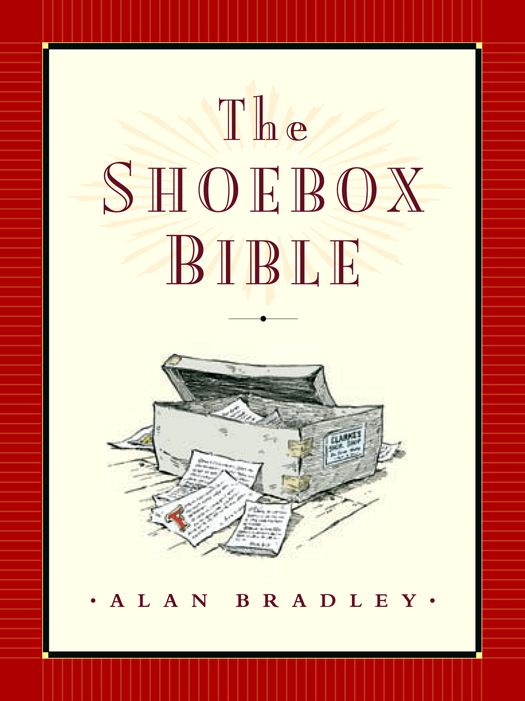
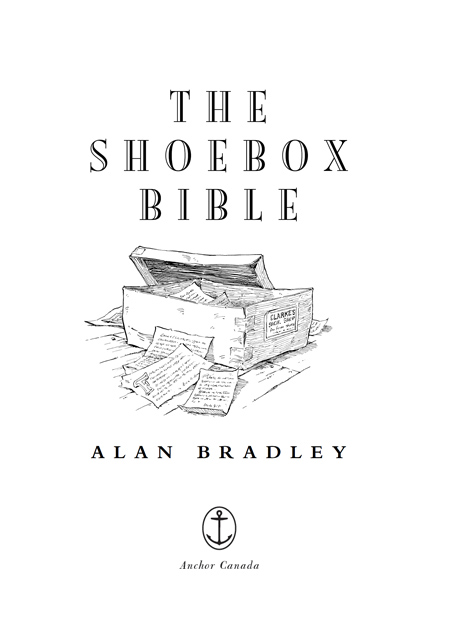
Copyright 2006 Alan Bradley
Anchor Canada e-book edition published 2014
All rights reserved. The use of any part of this publication, reproduced, transmitted in any form or by any means electronic, mechanical, photocopying, recording or otherwise, or stored in a retrieval system without the prior written consent of the publisheror in the case of photocopying or other reprographic copying, license from the Canadian Copyright Licensing agencyis an infringement of the copyright law.
Anchor Canada is a registered trademark.
Library and Archives of Canada Cataloguing in Publication data is available upon request.
ISBN: 978-0-385-68486-6
Published in Canada by Anchor Canada,
a division of Random House of Canada Limited
A Penguin Random House Company
www.penguinrandomhouse.ca

v3.1
To all mothers everywhere and especially mine.
But we all, with open face beholding as in a glass the glory of the Lord, are changed into the same image from glory to glory, even as by the Spirit of the Lord.
2 Corinthians 3:18
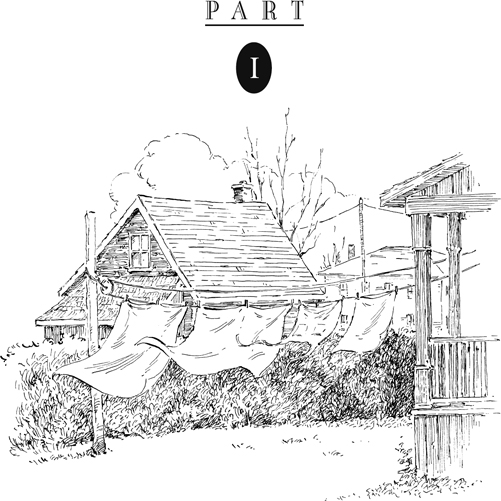
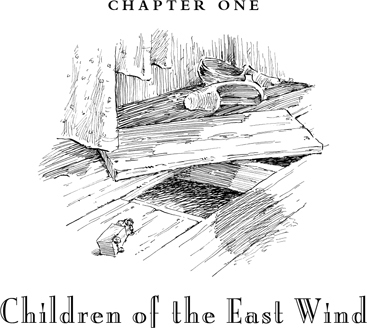
GOODBYE, ADAM AND EVE , my mother used to say. Here comes the Big Bad Wolf. I remember distinctly the first time I heard her use this expression. She had dolled me up in my best outfit short pants of bright canary yellow and a white blouse with a doily collar and hoisted me to the top of a weathered fence post that jutted up out of the earth in the wilderness of our garden. Here I sat, perched in a beam of sunlight.
Wolf, I echoed, and she squeezed me to her so tightly that tears sprang to my eyes, and then to hers. When I was older, I would learn that occasions accompanied by pain are often fixed fast in the memory like snapshots, but at the time, I was barely two years old, and my father had just run away from home.

I suppose my mother saw it coming, but if she did, she confided in no one. She had just turned forty, the season when self-counsel in despair is in full bloom. She would wait and see.
We stayed there for a long time in the stillness of our garden: me on the post and she with her arms wrapped tightly round my body, gazing off into a distance that was far beyond my childish horizon.

My father was a quiet man, known as a wizard at restoring to glowing life any kind of electrical gadget that had gone on the blink particularly radios.
He was something of a homegrown Thomas Edison and, like Edison, was sometimes referred to, even by his closest pals, as The Faraway Man. Still, in spite of his dreamy preoccupation his elsewhereness everyone said he was a kind and attentive husband, a proud and doting parent to his three children.
But when Hitlers polished jackboots goose-stepped across the face of Poland in 1939, my father began to grow restless, becoming increasingly agitated as the months of battle passed him by. The following year, as British troops were trapped at Dunkirk like so many brown rats, he reached the end of his tether, overcome at last by his hearts gnawing need to be somewhere else.
This was no symptom of the war, nor was it any new craving. It was an emptiness that had troubled him and grieved his parents throughout his haunted youth: an itch that they thought had been overcome and put to rest by marriage. But it had not. Like a fire in the coal bunker of an ocean liner, it had smouldered away far below the waterline, unsuspected by the happy passengers sunning themselves on the decks above.
And so it happened that one day, my father opened the screen door, walked into the kitchen, pulled out a chair, sat down at the table, burst into tears, and confessed to my mother that he had joined up and was leaving in two days.
The Royal Canadian Air Force, he said, was in desperate need of radio men. There was a war on, he said, and before anyone else could realize what he was about to do, before anyone could stop him, he was gone. His departure was its own reply to any possible objection. My sisters, both older than I one by ten years and the other by eight knew far better than I the reasons for his going. From time to time, I caught them looking at me as if in some way I had been the cause of his leaving them, as if I had somehow conspired with him to devastate their lives.
For a while our house was filled with awkward silences, and one of my earliest memories is of sitting on the floor listening to the ticking of the kitchen clock.
With his basic training complete, my father was posted three thousand miles away to a short-wave transmitting station on the West Coast: a station from which, with his high-powered, high-frequency communications equipment, he guided flying boats on their relentless round-the-clock hunt for enemy submarines in the Pacific Ocean. But his communications with the family he had left back east soon faded to little more than an occasional whisper, then to static, and then, finally, to utter silence.
My mother continued to write him faithful letters, always tucking in private notes from my sisters, but he did not reply.
It was then that my mother began to despair. Other than the small compulsory portion of my fathers pay that was mailed to her by the air force, she had no income. She had not worked for a salary since giving up her position with the telephone company to marry my father. But with the war on, there were no jobs left in our town no jobs suitable for a woman, particularly a woman of forty with three children. In the years she had been bearing and raising her family, so much of the larger world had passed her by. Now, her options seemed pitifully few.

We lived, in those days, in a rented four-square clapboard house (two up, two down) on a quiet, tree-lined residential street in a small southern Ontario town. Our garden, backed by a jungle of chokecherry bushes, was curtained off from the front lawn by a row of towering Lombardy poplars, whose restless leaves not only foretold the weather but indicated the season as perfectly as any brass weather gauge. In autumn, their summer foliage of salamander green turned overnight to blazing gold, as if, in the hours of darkness, a master gilder had lovingly burnished each leaf by hand. Beneath these whispering poplars, in a galvanized washtub, dwelt Jeremiah, my pet turtle, whom I had found sculling heavily through the long dew-soaked grass of our lawn one summer morning. Named for the prophet (because of the seething pot his tub became on hot August afternoons), he had in the middle of his square tin home a large stone for an island and a floating board upon which he could clamber to bask in the sun. Occasionally, he would contrive to wedge the board tightly between the rock and the sheer side of the tub, then, with a steady platform, claw himself up and teeter on the lip. Sometimes he splashed backwards into the water, and other times he would fall out onto the grass, where he would immediately set off like a windup toy tank but always toward the north to wherever he had been going the day I found him.
Font size:
Interval:
Bookmark:
Similar books «The Shoebox Bible»
Look at similar books to The Shoebox Bible. We have selected literature similar in name and meaning in the hope of providing readers with more options to find new, interesting, not yet read works.
Discussion, reviews of the book The Shoebox Bible and just readers' own opinions. Leave your comments, write what you think about the work, its meaning or the main characters. Specify what exactly you liked and what you didn't like, and why you think so.

